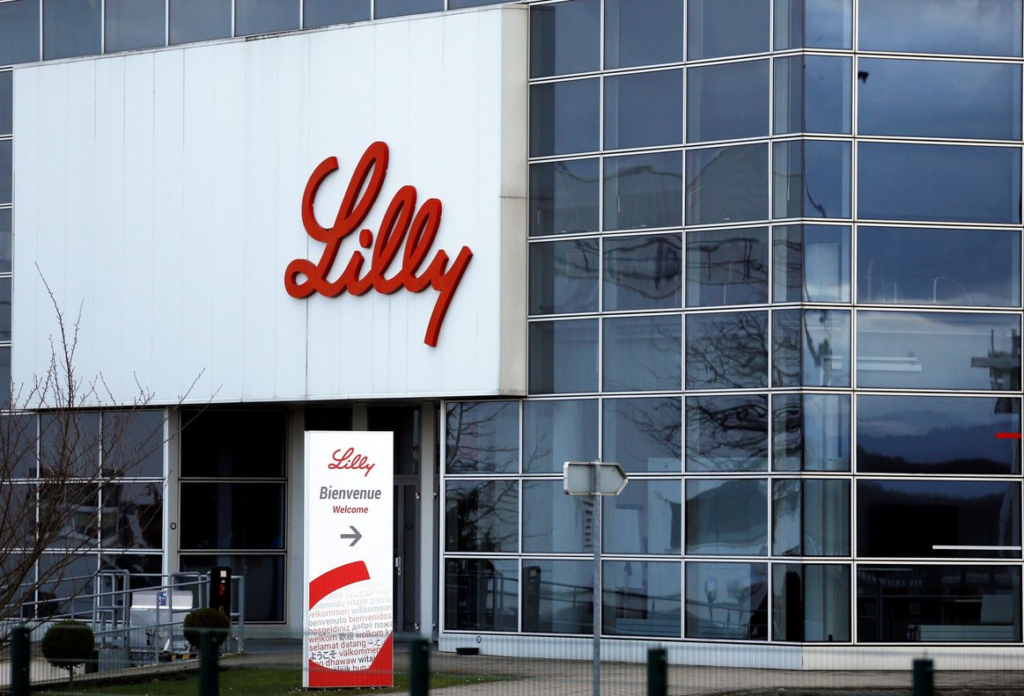Donanemab, the medication, achieved every trial target. In 1,182 patients with early-stage Alzheimer’s disease, as determined by scans revealing amyloid protein deposits in the brain and intermediate levels of tau protein, it reduced the course of the disease by 35% to 36% in comparison to a placebo, according to Lilly.

High tau levels in the remaining 552 trial participants suggested they would be less likely to benefit from the therapy.
Donanemab was found to reduce the advancement of Alzheimer’s by 22% using a Lilly-developed scale to measure cognition and everyday life, and by 29% based on a more widely used scale of dementia progression after combining the two groups.
According to Maria Carrillo, chief science officer for the Alzheimer’s Association, “these are the strongest phase 3 data for an Alzheimer’s treatment to date.”
According to study findings published last year, Leqembi from Eisai Co Ltd and Biogen Inc. decreased the rate of cognitive decline in patients with early Alzheimer’s by 27% using the widely used dementia scale.
Eli Lilly’s shares rose 5.6% to $427.05 on Wednesday’s news, while rival Biogen’s shares dropped 2.5% to $301.50 in premarket trade.
Brain swelling, a known side effect of medications of this kind, happened in 24% of the individuals in the donanemab therapy group, according to Lilly, with 6.1% of them exhibiting symptoms. 13.6% of those on a placebo experienced brain bleeding, compared to 31.4% of those using donanemab.
Nearly 13% of study participants in the Leqembi Phase 3 trial experienced brain swelling as a result of the medication.

According to Lilly, the incidence of major brain swelling was 1.6% in the donanemab research, with two deaths directly related to the condition and a third occurring after a serious brain swelling occurrence.
The new gold standard for Alzheimer’s drug efficacy is donanemab. To reduce safety hazards, neurologists must receive education, according to Citi analyst Andrew Baum’s research note.
The results “very excited” Dr. Eric Reiman, executive director of the Banner Alzheimer’s Institute, which is conducting a donanemab research in presymptomatic individuals to prevent Alzheimer’s disease. Clearly, there were benefits, but there are also risks that need to be taken into account.
By the end of June, Lilly said, it will submit documents for typical U.S. clearance. Shortly afterward, it will submit documents to regulators in other nations.
“There are risks in medicine, but I think when you look at these results in the context of a fatal life-threatening disease, (they) are quite meaningful,” said Anne White, executive director of Lilly Neuroscience, in an interview with Reuters.
Donanemab was given as an intravenous infusion once per month to study participants. The medication was discontinued and subjects were switched to the study’s placebo group after further brain scans revealed that the amyloid had been eliminated. According to the business, after a year there was no sign of amyloid plaques in half of the trial participants.
Additionally, it stated that in the 18-month trial, 47% of donanemab patients had no disease progression at 12 months, as opposed to 29% of the placebo group.
Following the U.S. approval of two related medications created by partners Eisai and Biogen – Leqembi and Aduhelm – which failed to gain traction with doctors or insurers after showing little evidence that they slowed cognitive decline, Lilly’s drug is likely to become the third in its class on the market.
Both were accepted as part of the FDA’s expedited review process due to their capacity to eliminate amyloid plaques.
The FDA is now reviewing Leqembi, and a decision is anticipated on July 6.
According to the Alzheimer’s Association, there are already more than 6 million Americans living with the disease, and by 2050, that number is expected to reach about 13 million.





